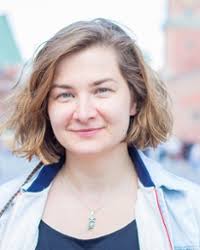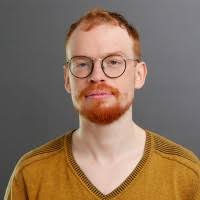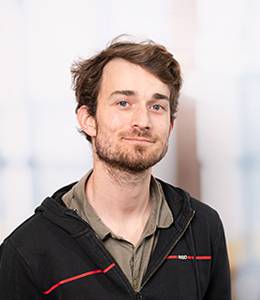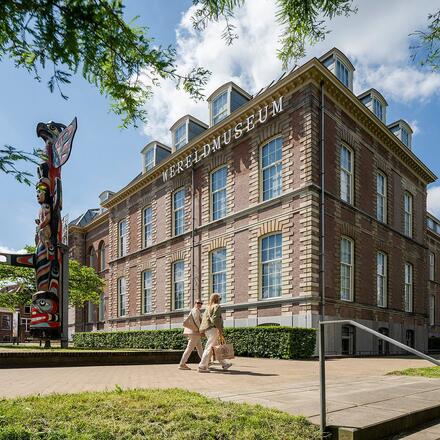14th QSC General Assembly in Leiden
The following speakers have confirmed that they will give a presentation at the Wereldmuseum:
1. Anna Dawid-Lekowska - Leiden University, Leiden Institute of Advanced Computer Science (LIACS)
2. Krystal Guo - University of Amsterdam, Korteweg-de Vries Institute for Mathematics (KdVI), QuSoft
3. Freek Witteveen - Centrum Wiskunde & Informatica, QuSoft
4. Christian Andersen - Technical University Delft, QuTech
PROGRAMME
10.00-10.30 Registration
10.30-10.40 Opening by Ronald de Wolf
10.40-11.20 Anna Dawid-Lekowska
11.20-12.00 Krystal Guo
12.00-12.45 Lunch + start museum tour group 1
12.45-13.30 Lunch + start museum tour group 2
13.30-13.45 Coffee break after lunch to get ready
13.45-14.25 Freek Witteveen
14.25-15.00 Tea/coffee break
15.00-15.40 Christian Kraglund Andersen
15.45-16.00 Closing
16.00-17.00 Drinks and snacks



1. Speaker: Anna Dawid-Lekowska
Affiliation: Leiden University, Leiden Institute of Advanced Computer Science (LIACS)
Title: Curious loss landscapes of artificial neural networks
Abstract: Training large, overparameterized neural networks should, in principle, be super painful—searching for solutions in high-dimensional spaces while relying only on local information seems nearly impossible.
Yet, in practice, training is efficient, and the resulting solutions often generalize well despite the capacity to memorize entire datasets. In this talk, I will survey curious properties of loss landscapes that
help explain this paradox. I will also demonstrate how the geometry of these landscapes relates to the decision boundaries of classifiers and explain what the “Goldilocks zone” is for neural network initialization.
2. Speaker: Krystal Guo
Affiliation: University of Amsterdam (Korteweg-de Vries Institute for Mathematics), QuSoft
Title: Combinatorial constructions for quantum wires
Abstract: Perfect state transfer was proposed as type of "quantum wire"; as a part of a quantum algorithm, one may want to transfer a state from one qubit to another qubit. While this could be done using a series of swap gates, such an operation might be prone to noise. This motivated the idea that one could construct a time-evolution quantum process that would perform the state transfer. Since its introduction in 2003, state transfer has been studied extensively with tools from algebraic graph theory and has let to many interesting combinatorial problems.
In this talk, we introduce peak state transfer—a generalization of perfect state transfer -- in both continuous and discrete-time quantum walks, which quantifies the maximum state transfer achievable under unitary evolution even when perfect state transfer is out of reach. Using a spectral characterization, we can determine this completely for some families of graphs, including an infinite families where the amount of peak state transfer tends to 1 as the number of vertices grows. We will highlight the combinatorial connections and matrix techniques used. This is based on joint work with Vincent Schmeits.
3. Speaker: Freek Witteveen
Affiliation: Centrum Wiskunde & Informatica, QuSoft
Title: Randomized truncation of quantum states
Abstract: A basic optimization question is how to approximate an object such as a vector, matrix, or tensor with an element from a simpler set, such as a sparse vector, low-rank matrix or tensor. Given a pure quantum state on one system, we might approximate it with a sparse state; an entangled state on two systems can be approximated by a state of bounded Schmidt rank; a many-body state can be approximated by a matrix product state with a limited bond dimension. The optimal deterministic approximation by a k-sparse state is simple: keep the top k entries. However, mixtures of k-sparse states can achieve trace distances that are up to quadratically better, and also yield nontrivial bounds on the max relative entropy, or robustness.
I will present work with Aram Harrow and Angus Lowe on efficient algorithms for finding mixtures of sparse states that optimally approximate a given pure state in either trace distance or robustness. This has application to the truncation step of algorithms for matrix product states, improving the accuracy while using no extra memory.
4. Speaker: Christian Kraglund Andersen
Affiliation: Technical University Delft, QuTech
Organizers:
Peter Bruin (MI, Leiden University)
Liubov Markovich (LION, Leiden University)
Doutzen Abma (QuSoft, Centrum Wiskunde & Informatica)
Carla van Asperen (QuSoft, Centrum Wiskunde & Informatica)

